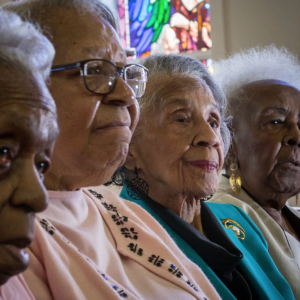June 2nd, 2016 Newsletter

June 2nd, 2016 Newsletter
June 2, 2016
Good morning and welcome to agebuzz… Headlining today’s topics:
-Runners Up: Exercise Benefits Brain Health
-Call and Response: Voters Must Demand Candidates Address Health Issues
-Losing My Mind: Tech Products To Help You Keep Track
-It Takes A Village: Community Networks For Aging In Place
-Hospital Hazard: Mental Status Changes In Older Hospital Patients
-Old Friends: Four Ladies Turn 100 Together
-The Last Word
Runners Up: Exercise Benefits Brain Health: Researchers from the University of Miami have new data to support the benefits of moderate to vigorous exercise as a way to protect the aging brain. The benefits of exercise for the heart and more general physical health are widely known. What is now becoming clear is that exercise may also be crucial for maintaining mental clarity and cognitive skills. Researchers documented that those seniors engaged in moderate to vigorous regular exercise had brains equivalent to individuals ten years younger. Yet another reason to lace up your running shoes! Get out your water bottle and Read This.
Call And Response: Voters Must Demand Candidates Address Health Issues: It may be the silly season in politics, but there’s nothing silly about the serious health policy issues that candidates are ignoring. Kaiser Health News has created a list of health concerns that loom large as the population ages and that have serious health and economic consequences for our country if they remain unaddressed. The list includes rising out-of-pocket health expenses, lack of access to dental care, the costs of long-term care, and the burdens of Medicare, which currently constitutes 14% of the federal budget. Rising drug prices are also of concern. If we don’t demand attention to these issues, candidates won’t feel the need to take action. So pull out your megaphone and Read This.
Losing My Mind: Tech Products That Help You Keep Track: Has anyone seen my keys? Could you call my cell phone- I can’t find it. Where did I leave that umbrella? Does this sound like you or someone you know? Given all of the devices and stuff that we carry around each day, it’s no wonder that things get lost- or at the least, misplaced. How to solve these little life annoyances? Several tech companies now make small devices either built into products or easily attachable to your possessions, so that you can get a reliable response when you shout out for your lost object. Want more info on these tech trackers? Read This.
It Takes A Village: Community Networks For Aging In Place: The data is clear: if given the choice, most people prefer to grow older in their homes and familiar neighborhoods i.e., they want to “age-in-place.” But as we age accommodations often need to be made: Repairs or changes to the environment for safety concerns, assistance in the home for difficult tasks or personal care, or perhaps arrangements for transportation or social interactions that used to be taken for granted. In many communities, where clusters of individuals are growing older, “villages” have sprung up to allow seniors to share resources or get helpful suggestions from one another to ease the challenges that confront those aging in place. The Village to Village Network is a not for profit organization that helps set up these community villages, and that can help you locate one in your own community. To find out how it’s done and what’s available in your own region, Read This.
Hospital Hazard: Mental Status Changes In Older Hospital Patients: It’s not uncommon for caregivers to be concerned about mental status changes in their hospitalized older relatives. Hospitals are highly artificial environments that can turn normal routines upside down: sleep is disrupted, strangers come and go, medications may be abruptly altered, all leading to disorientation, confusion, and delirium in older patients. In over 200 hospitals around the country, there is a program called HELP (Hospital Elder Life Program) that works to identify patients who may be at risk and to prevent the often dire consequences of this delirium. To learn more about this program and for tips about how to protect your loved ones in such circumstances, Read This.
Old Friends: Four Ladies Turn 100 Together: At the beginning of the 20th century, four small African American girls began their lives in the same Southwest neighborhood of Washington DC. They played together, faced the same challenges growing up in a still-segregated society, grew up to marry and start families and sustained their friendships through life’s pleasures and perils. What they never anticipated, and still find astonishing, is that from girlhood to great-grandmother status, these women have all reached the age of 100 together. It’s a story of both personal and American history, and it’s a wonder to behold. Read their story Here.
THE LAST WORD: “I have reached the age when, if someone tells me to wear socks, I don’t have to.” Albert Einstein







